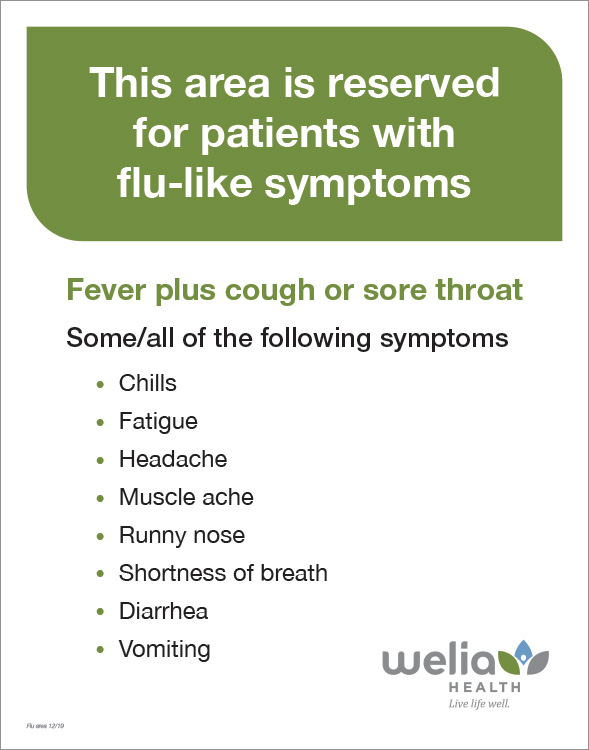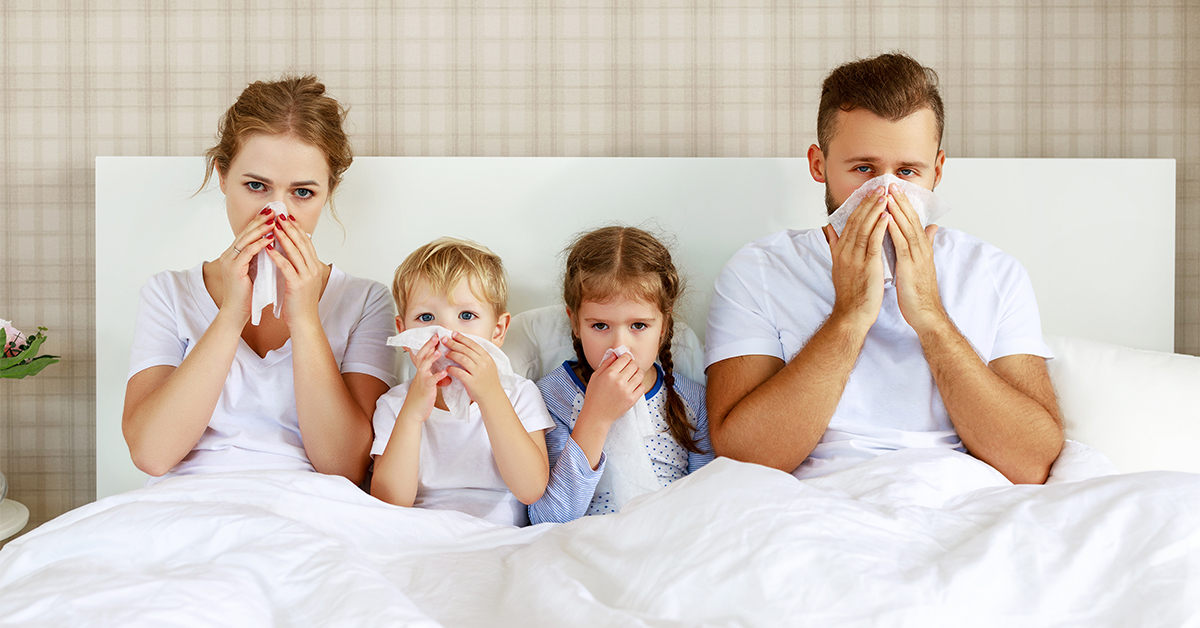With the holiday season came influenza–the flu–full force here in Minnesota. But just because it’s already here doesn’t mean it’s too late to get a flu vaccine.
Welia Health providers vaccinate through the end of the winter and into the spring. In fact, we don’t stop vaccinating until April or May because the flu can hit at any time. Plus, with many different strains of the flu, the flu shot is your best protection. So even if you’ve already had the illness, you should still get vaccinated if you aren’t already.
The timing of the flu varies from year to year. At Welia Health, we’re starting to see the flu virus in our Emergency Department, which seems a little early this year. There have been years where we haven’t seen any significant influenza until well after the New Year.

To help protect our patients, visitors and staff, we’ve started putting signs in our entryways to encourage people who are sick to wear masks and sit in designated areas in our waiting rooms. Unfortunately, our employees get sick as well, and when they do, they are not allowed to work until their symptoms have cleared up.
Where to get a flu shot
To get your flu shot, call any one of our clinics to make an appointment or stop into either Mora Community Pharmacy or Pine City Community Pharmacy (you need to be 18 years of age or older). The flu shot is your best protection against the flu. Plus, it protects people in our communities who are unable to get a flu shot, such as infants under six months or people with certain medical conditions.
Flu prevention
In addition to getting a flu shot, the most considerable flu-prevention measure is to maintain good hygiene. More specifically, you want to:
- Wash your hands with soap and water for at least 20 seconds or use alcohol-based hand sanitizer.
- Clean surfaces that people touch, such as door handles and countertops, if someone in your house or workplace is sick.
- Avoid touching your face, particularly your eyes, nose and mouth.
- Cover your cough and sneeze by coughing/sneezing into a tissue or into your sleeve. If you do cough, it’s a good time to wash your hands.
Also, try to avoid people who are sick and remind your children and family members about practicing good hygiene.
Flu symptoms
The flu often comes with chills, body aches and a fever. Many people associate vomiting with the flu, but that’s not often the case. The flu can progress into a respiratory infection, and a cough can develop, which is how the flu spreads.
Flu symptoms can sometimes last a week or two, but if you have received the flu vaccine, the length of time you are sick may be shortened, if you get sick at all.
Flu treatment
Because the flu is a virus, antibiotics are not prescribed unless an infection develops, for instance, a sinus infection. Welia Health providers will often give antiviral medication to high-risk patients such as the elderly, pregnant women, very young children and people who have other illnesses such as asthma or cancer. Antiviral medication is most effective in the first couple of days of a person having the flu. So, people in these high-risk categories–and their caregivers–should be particularly vigilant if the flu is suspected.
We recommend that people see their provider if they’re concerned about their symptoms. Patients should go to the Emergency Department if they’re struggling to breathe or having difficulty staying hydrated.
So, get your flu shot, maintain good hygiene and avoid people who are sick. If you take all these precautions and you still get the flu, we’re here for you at Welia Health.
For more information about the flu, see the Centers for Disease Control and Prevention website.














